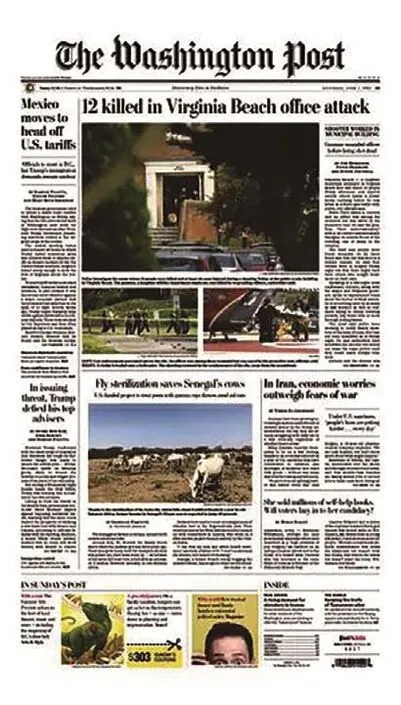双语
◆唐 涛/编译

The article in Time on June 3rd 2019,“What South Africa Can Teach Us”mentions that Mandela’s rainbow nation was supposed to show the world how a new, equitable society could be built out of the ashes of repression and racism. But by some measures,inequality in the country today is worse than it was under apartheid.Unemployment, poor education programs and a collapsing public health system all play a role. But the largest dividing line is land, where the legacy of apartheid meets the failures and broken promises of the current government. It’s manifested most plainly in the lack of affordable housing, particularly in urban areas.
最新一期的美国《时代》周刊题为《南非给我们的教训》的文章提到,曼德拉的“彩虹国家”应该向世界展示, 一个新的、公平的社会是如何从镇压和种族主义的废墟中建立起来的。但从某种程度上说,今天该国的不平等比种族隔离制度下更严重。其中原因包括失业、教育质量低下和公共卫生系统崩溃。但最大的不平等是土地——种族隔离时代的“遗产”与现政府的失败和违背承诺作用叠加的结果。最明显的表现是缺乏经济适用房, 特别是在城市地区。

The article with the title saying“China is paying Trump’s tariffs?”in Washingtonpost on June 3rd, 2019,mentioned that if the American company could buy its product from Vietnam or Bangladesh rather than China, the Chinese supplier might decide to eat the tariff cost rather than see its American customer defect. But for those which couldn’t quickly switch to a non-Chinese supplier.
2019年6月3日的《华盛顿邮报》一篇题为“特朗普税是中国付的吗?”的文章称, 如果美国公司放弃中国供应商,转而向越南或者孟加拉国购买产品,中国供应商或许不愿看到美国客户“背叛”而决定承担关税成本。但是,对于一时无法找到能够替代中国货的美国公司呢?

